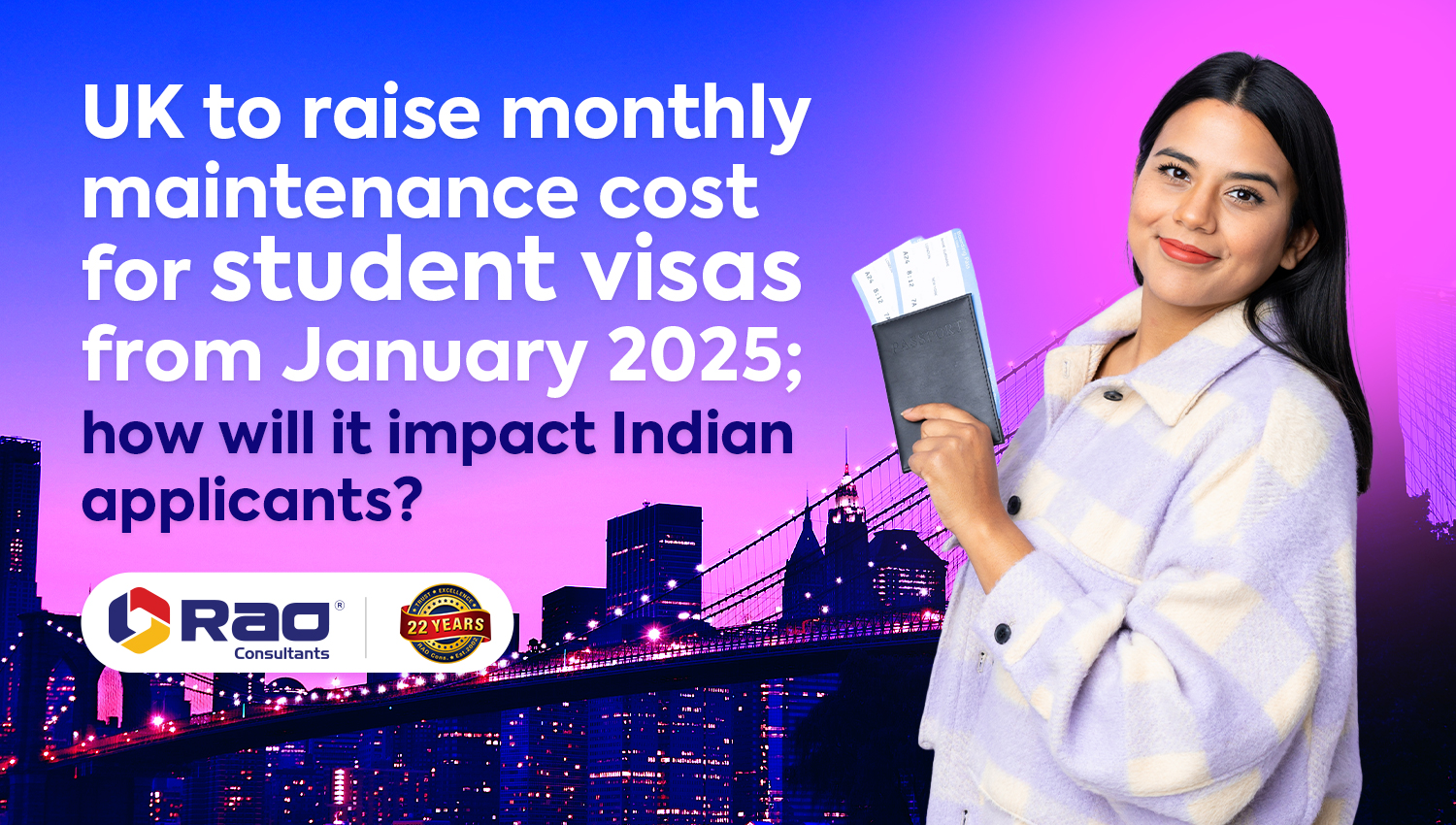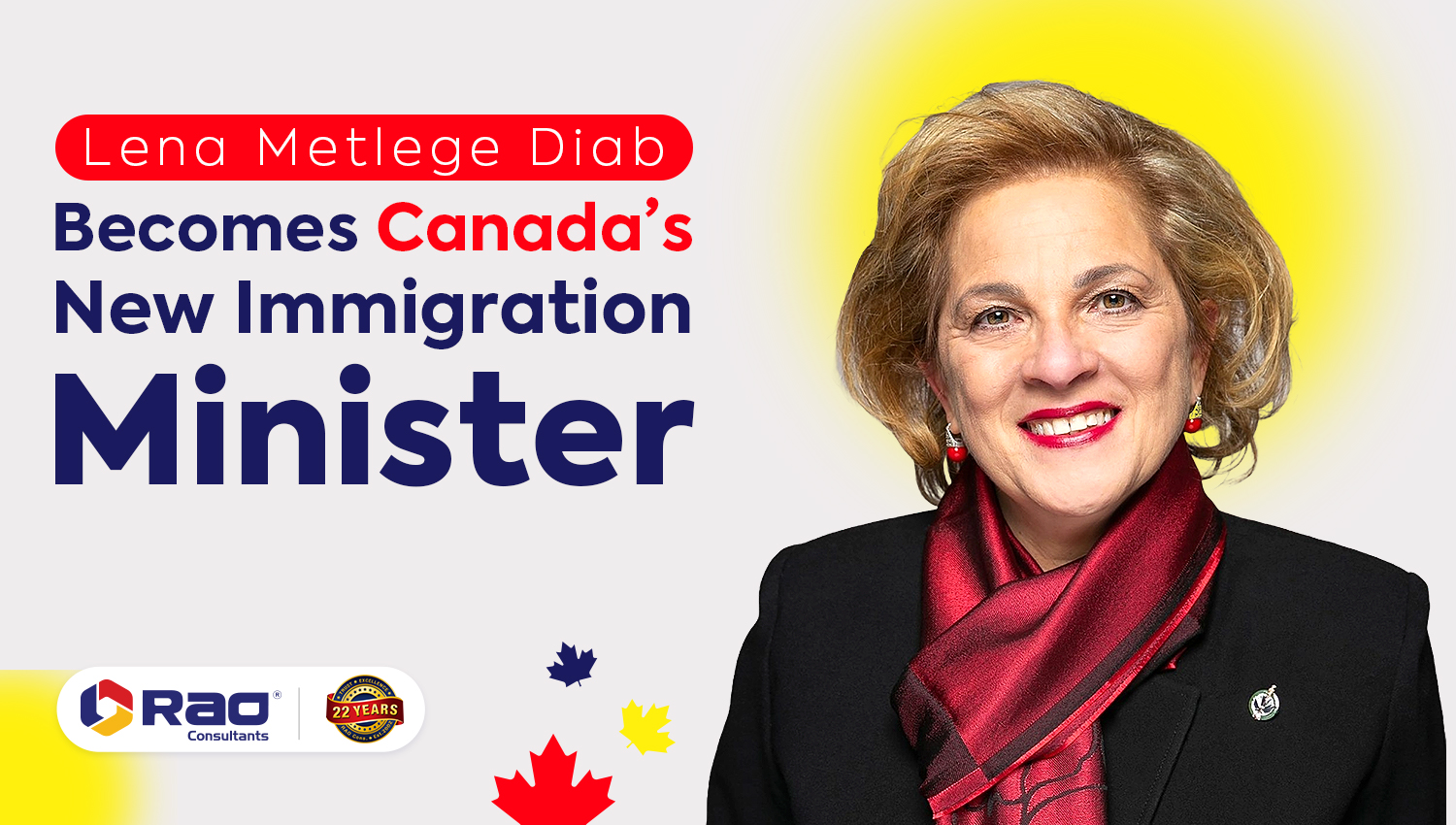News


admin
November 22, 2024
UK Student Visa Living Expense Has Been Increased from 2nd Jan 2025
![]()
The United Kingdom has announced a major increase in the financial maintenance criteria for student visa applicants beginning January 2, 2025. This change, which aims to keep up with inflation and growing living costs, will have a direct impact on international students planning to study in UK. Indian students, who account for a large proportion of the international student group in the UK, are among those affected.
What Are the New Requirements?
Under the revised criteria, students must show that their monthly living expenditures have gone higher in order to obtain a visa. The modified maintenance needs are as follows:
- For Students in London: £1,483 per month (previously £1,334), amounting to a total of £13,347 for nine months of study.
- For Students Outside London: £1,136 per month (previously £1,023), amounting to £10,224 for nine months of study.
The amounts are required for the visa application procedure and are intended to pay for everyday needs including food, lodging, and other living expenditures.
How Much Money Do Students Need to Show?
To apply for a student visa, candidates must have a bank account balance equal to the course costs + living expenses for at least 28 days. This financial documentation must be presented within 30 days of the final day on the bank statement.
For instance:
A student applying to a London-based institution with tuition costs of £20,000 will have to demonstrate:
- £20,000 + (£1,483 × 9 months) = £33,347.
A student enrolling to a non-London institution with tuition costs of £20,000 is required to show:
- £20,000 + (£1,136 × 9 months) = £30,224.
If the student obtains a scholarship or makes an advance payment, the corresponding amount might be reduced from the total amount necessary.
Streamlining Documentation with a Digital Immigration System
The UK Visas and Immigration (UKVI) department is likewise shifting to a totally digital immigration system, which will replace many paper documents. This includes:
- Biometric Residence Permits (BRP).
- Biometric Residence Cards (BRC).
- Passport endorsements, such as indefinite leave to enter stamps.
- Vignette stickers in passports, such as entry clearance or visa vignettes.
This change attempts to streamline and modernize the application process, making it more efficient for both students and administrators.
Impact on Indian Students
In the United Kingdom, a substantial proportion of overseas students are Indian. This increase may make it more difficult for students from low-income households to study in the United Kingdom. To meet the additional demands, they will need to perform more financial planning, such as researching scholarships or looking for other finance sources.
Steps for Students to Adapt
To Navigate These Changes Effectively, Students are Encouraged To:
- Plan Finances in Advance: To guarantee that there are enough finances available when you apply for a visa, begin your preparations as soon as possible.
- Explore Scholarships: Seek out bursaries, grants, and scholarships that can assist in defraying the higher expenses.
- Seek Professional Guidance: To better comprehend the revised criteria and obtain knowledgeable support during the application process, engage with visa advisors.
Why the Change?
The UK government claims that the increase in living expenses is in keeping with inflation and is meant to ensure that students can support themselves while they are there. The revised amounts are intended to better reflect the actual costs that international students in the UK face.
Implications for Future Aspirants
This shift highlights how important it is for anybody considering studying abroad to be financially prepared. The UK’s greater maintenance requirements may convince international students to choose it over other study abroad choices, especially when tuition rates are already onerous. However, if you prepare well, studying in the UK is still a smart investment due to its excellent educational system and abundance of chances.
If you want to study in the UK in 2025 or later, start planning now. We are here to help students adapt to these changes. Our staff provides specialized guidance to assist students in meeting financial criteria, exploring scholarship options, and submitting good visa applications. Contact us for experienced advice and keep your study abroad adventure on track despite these new hurdles.
You May Also Like

Canada’s Proposed Citizenship Bill: A Landmark Opportunity for the Global Indian Diaspora
Canada is once again reaffirming its image as one of the world’s most inclusive and forward-thinking nations with a historic new bill—Bill C-3, introduced on June 5, 2025—that seeks to restore and expand citizenship rights, especially for those known as the “Lost Canadians.” This reform, if passed, is expected to have a far-reaching impact, particularly […]
Read More
Lena Metlege Diab Becomes Canada’s New Immigration Minister
![]()
Lena Metlege Diab has been appointed as Canada’s new Minister of Immigration, Refugees and Citizenship. The announcement was made on May 13, 2025, as part of a cabinet change by Prime Minister Mark Carney. Diab takes over from Rachel Bendayan, who briefly held the role after Marc Miller. This new position puts Diab in charge […]
Read More
Anita Anand Becomes Canada’s First Hindu Woman Foreign Minister: A Big Step for India-Canada Relations
![]()
Anita Anand has made history by becoming Canada’s new Minister of Foreign Affairs. She is the first Hindu woman to take this important role, showing how Canada is becoming more diverse and inclusive. Her appointment could also help improve the relationship between India and Canada. Her Journey in Politics Before entering politics, Anita Anand was […]
Read More